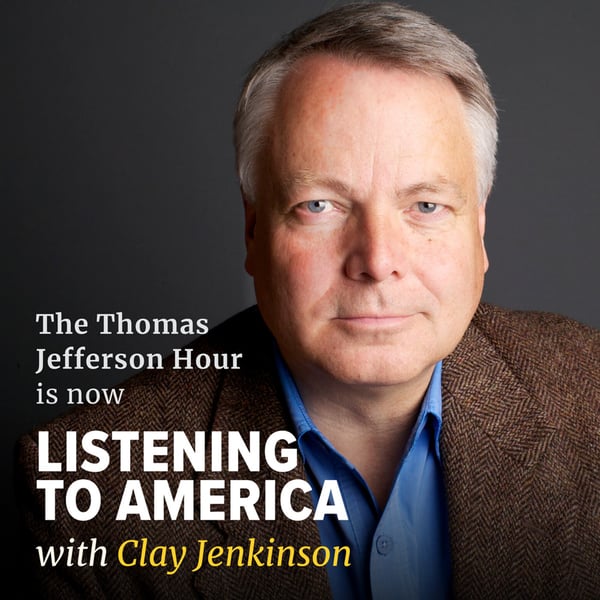#1600 A Conversation with Richard Rhodes
Listening to America
Listening to America
4.6 • 1.1K Ratings
🗓️ 20 May 2024
⏱️ 56 minutes
🧾️ Download transcript
Summary
Clay Jenkinson interviews Pulitzer Prize winning historian Richard Rhodes, the author of 23 books including The Making of the Atomic Bomb. Topics include Rhodes' path to one of the most productive and acclaimed writing careers in recent American history; the strengths and weaknesses of Christopher Nolan's film Oppenheimer; the time Edward Teller abruptly stopped an interview and asked Rhodes to leave; the current status of the Doomsday Clock that tells us how close we are to nuclear war; and what's next in the illustrious career of the much awarded and universally celebrated author.
Transcript
Click on a timestamp to play from that location
| 0:00.0 | Hello everyone, welcome to this podcast introduction to this week's program, my interview, the first of a number of interviews with Richard Rhodes. |
| 0:08.0 | Richard Rhodes, the author of 23 books, including of course the Making of the atomic bomb which won for him the |
| 0:14.2 | Pulitzer Prize and the National Book Award and he's one of MacArthur Prize and you know he's |
| 0:19.0 | one of the most extraordinary writers in America. I've revered his work, particularly his work on |
| 0:27.1 | nuclear things, the atomic bomb, the hydrogen bomb, his later book about nuclear proliferation called Arsenal's of Folly. |
| 0:37.0 | But he's written novels and he's written a biography of Hedy Lamar and another one of E.O. Wilson and a series of essays including some fairly sharp |
| 0:46.2 | essays. I learned today that he used to write for Playboy when Playboy was a really important part of the national discourse, |
| 0:55.0 | when Playboy was making a real run at having some of the best cartoonists |
| 1:00.0 | and some of the best humorists and some of the best writers in America. |
| 1:04.0 | And of course there were also the Playboy interviews that were so very important during that era. |
| 1:10.0 | Almost forgotten today. |
| 1:12.0 | Oh, amazing, I'm just thrilled to be sitting here just minutes after I had to say goodbye. |
| 1:19.0 | And I had noticed a passage in his book looking for America which was published in the late 1970s when I was just getting out of college and my friend Sue Helpern had given it to me when we were working together, you know, living in the same place. |
| 1:37.0 | And then I came upon this blue paperback, which I got from one of the most important friends I've ever had I wrote to her and said hey I just opened this book and there's an inscription from you saying that the essay on the Kennedy's is particularly |
| 1:51.0 | interesting and so I've been re rereading the book and I'm so |
| 1:54.5 | impressed that I've contacted Richard Rhodes out of the blue and said is there any |
| 1:59.2 | possible way that you might be willing under exactly the right circumstances to sit for an interview or maybe even a series of interviews. |
| 2:09.0 | When you write that sort of thing to an eminent person, you have to be prepared. You have to put on a little body |
| 2:15.2 | armor because they're so busy and they're so eminent and they have to say no virtually all |
| 2:20.8 | the time in order to do what they do, to get the time that they need for their |
| 2:25.8 | research and their writing and their thinking and their lecturing. |
| 2:29.2 | But he immediately wrote back and said, yes, of course. |
... |
Please login to see the full transcript.
Disclaimer: The podcast and artwork embedded on this page are from Listening to America, and are the property of its owner and not affiliated with or endorsed by Tapesearch.
Generated transcripts are the property of Listening to America and are distributed freely under the Fair Use doctrine. Transcripts generated by Tapesearch are not guaranteed to be accurate.
Copyright © Tapesearch 2025.

